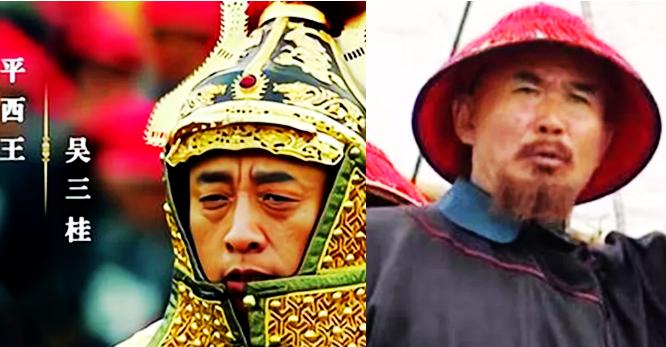The author once raised a question in an article, Wu Sangui was accused of being a traitor when he led the Qing soldiers into the customs, and Shi Lang led the Qing soldiers to attack Taiwan and was known as a national hero, why is the evaluation of these two people so different?
The author pondered for a long time before he came to the conclusion that the pragmatic view of history that worships power is at work, and he tries to analyze it as follows:
At the time of Wu Sangui's surrender, the world was in chaos, and the three forces of Li Zicheng, Remnant Ming, and Manchu Qing had not yet divided the victory and defeat, and who would dominate the world was still undecided. In other words, who is orthodox, who is partial, who is the representative of the unified state, and who is the separatist forces have not yet been decided (although culturally, the remnants are the orthodox of Chinese culture). It was precisely because Wu Sangui's surrender broke the balance of the three forces, and the weight of the balance fell to the Manchu Qing side, so Wu Sangui became a traitor who lured the wolf into the room and gave the Chinese world to foreign tribes.
By the time of Shi Lang, the overall situation of the world had been determined, and all the territories of the whole country except Taiwan belonged to the Manchu Qing government, and naturally the Manchu Qing government became a symbol of national unity and a representative of Chinese culture, and the Zheng clique, which was in a quiet corner, became a separatist force dividing the country. Therefore, the war between Shi Lang and the Zheng clan no longer has the cultural significance of Huayi, but a struggle between reunification and anti-reunification, division and anti-division. Shi Lang naturally became a national hero who swept away the separatist forces and realized national reunification.

The core of this pragmatic view of history is to no longer stick to cultural arguments, no longer adhere to moral temperament, and whoever is strong and contributes to national unity and territorial expansion will be loyal to whomever is strong
This view of history is very harmful. Looking at history with this view of history, we will draw many conclusions that reverse black and white. In history, many national heroes, such as Yue Fei, Wen Tianxiang, and Shi Kefa, have become sinners who hinder national unity and national unity, while national scum like Qin Ju and Wu Sangui have instead become heroes who promote national unity and accelerate national unity and integration. Some people have publicly written that Yue Fei is not a national hero; some people have tried to rehabilitate Qin Juniper and make Qin Juniper "stand up.".
Looking at the present day with this kind of history, many problems can become very confusing. For example, on the issue of the War of Resistance Against Japan, can we ask the question as follows: When Japan had just invaded China and the situation under the world was undecided, those like Wang Jingwei who surrendered to Japan were traitors, just like Wu Sangui. Suppose that after a few decades, Japan successfully invaded China, occupied most of the territory, established a central government, and then surrendered to Japan and helped Japan to recover a small number of resistance forces, it became a national hero who promoted national integration and accelerated national reunification, like Shi Lang.
Educating future generations with such a view of history will bring about very serious social problems. Children will ask, if there is another foreign invasion, will we resist like Yue Fei and Wen Tianxiang, or will we go to the enemy like Wu Sangui, Shi Lang, and Wang Jingwei?
The state and the nation are a historical concept that has different connotations in different historical periods. Today's China is a big family of 56 nationalities, and everyone is the Same Chinese nation. In history, the Han and manchu, Mongolian and other foreign nationalities are two ethnic groups, two countries, and the relationship between them is the relationship between countries.
Therefore, when talking about historical issues, we must give overall consideration to history and reality, and we must neither engage in historical nihilism nor historical pragmatism. If we use the current state-ethnic relations to explain the historical state-ethnic relations, and deliberately distort historical figures just because we are currently facing the practical problem of reunification, we will surely harm our descendants and cause endless harm. Conversely, if we overemphasize the conflicts and contradictions between the Han nationality and foreign nationalities in history, it will inevitably have an adverse impact on today's ethnic harmony and national stability, and trigger ethnic separatist tendencies.
Therefore, when talking about state-to-ethnic relations, the grasp of history and reality is a rather difficult task that needs to be treated with caution.